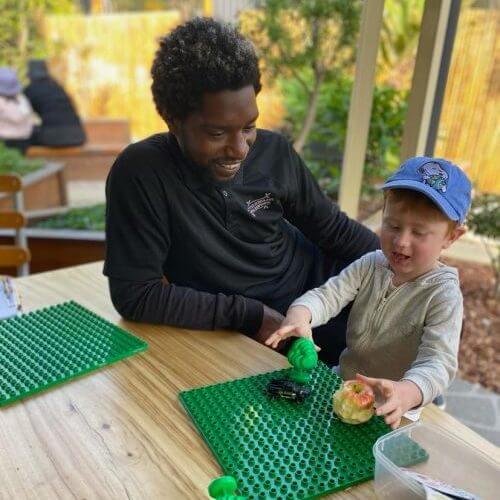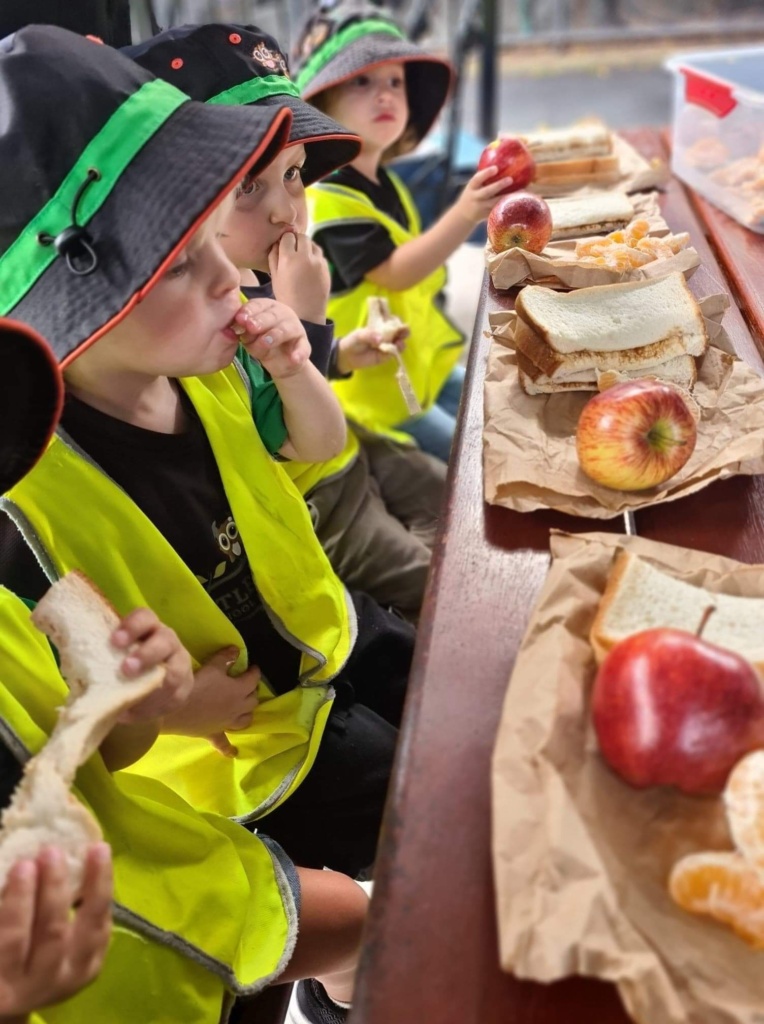Why do our children sometimes express some big bursts of negative moods after they come home from a seemingly fun day at childcare? This could be due to after school restraint collapse. Meanwhile, you expect them to come home happy and excited to tell you all about their day of crafts, books, playtime and outings, after all, you often get reports that your child was an angel all day. But when he or she comes home, that angel seems to have taken those wings and flown away, being replaced with something not so angelic.
Some child experts call it ‘after school restraint collapse’, and it seems to happen because children hold it together all day in childcare. Children use a lot of energy being well-behaved, following direction, sitting still, retaining information, and all of this without their primary attachment figures, their parents/caregivers. It can also simply be that some children meltdown because they are tired or overstimulated. Wanting to learn more about Little Scholars and how we deal with these big emotions? Contact us today.
This leaves your child’s best opportunity to release their emotions when they get to a safe place, their home. Those emotions can take the shape of crying fits, whining, screaming, disrespect or physically acting out to parents or siblings.
“I always say to parents, ‘do you have a best friend, someone you let all your emotions out when you see them? You are this to your child and when they see you after a big, busy day at Kindy, it all comes out,’” says Libby Kissell, a lead educator with our Redland Bay South campus.
“Rest assured they had an amazing day, but they let it all out when they see you because YOU are their person, their safe zone.”
Young children haven’t yet developed the essential brain wiring or had the necessary life experience to be able to calm themselves down from big feeling states, which is why they experience such frequent meltdowns. They know they can do this at home because they’re in a place where they’re loved and supported.
Your child is loved and supported by our team at Little Scholars, talk to us if you’re struggling and we can think and discuss how to make things easier for your little one.
“As an adult, we come home from a big day at work and we just want time to ourselves to zone out and not have to think,” says Holly Medbury, an educator from our Stapylton campus.
“We might even get annoyed if people want our attention, kids feel the same, but often have difficulty expressing it. Children are little people with big emotions, they too need some time to ‘chill out’ or a friend to be there and hug, with no expectations. It’s just reassurance for parents out there that they are doing an amazing job and providing useful strategies to help children cope with their big emotions.”

You can send them to their centre with a comfort toy or blanket that they can reach for when they need it. You could also send them with a picture of their family, or a note in their bag telling them how proud you are of them and how much you love them
Spend an extra five to 10 minutes with them before they start their day at Little Scholars. Just a few connected minutes with your child can make a significant difference in their day
Have a conversation with them on the way to childcare or when you get to their centre that focuses on what they can look forward to after you pick them up later, maybe that conversation looks like, ‘When I come to get you, would you like to go to the park or go pick out some new books to read at the library?’
Bring a snack for the trip home, sometimes hunger can be distracting for them and can stir up emotions.
When you pick them up, maybe all they need is a big reassuring hug. Maybe they need quiet. Maybe they’d like to tune out to some music they enjoy for a few minutes. Maybe they need to relax on a park bench or burn some energy at the playground. Follow their lead and take some time before asking questions about their day.
Again, feel free to talk to your educators about what’s happening at home. We have an open-door policy and we’re here for you. Your child’s educators, after spending time with your little one, may have specific ideas on how to help your child or can try to dedicate some quality time with your child to help them relax and feel cared for.
By understanding a little better why there are strong feelings coming from your child after a day of childcare, you are better armed to handle after school restraint collapse or even moderate reactions before their start.
For more information:
Everyone knows or has a fussy eater. Whether it’s a two-year-old who won’t try new foods, a 10-year-old who is stuck on plain pasta or a ‘whitearian’ who only eats shades of beige, feeding children can become a real struggle. A period of fussiness is a normal part of a toddler’s development and is a sign that they are becoming more independent, but left unchecked, fussy eating can take over mealtimes making them stressful and unenjoyable for everyone.
Most fussy eating is behavioural, but it is important to check that there aren’t other reasons for your child’s fussiness. A really easy way to do this is to think about whether your child is fussy across different environments. For example, if they won’t eat this and that at home, but they will eat it at daycare, it’s a good indication that their fussiness is behavioural. Often, when a child is taken out of their usual environment, given a routine that they are expected to follow, and sit with other children, they will eat things that parents never thought possible. Are you struggling with a fussy eater? Contact our Little Scholars Day Care Centre to learn how we combat fussy eating during daycare.
Well firstly, the most important step no matter what the origin, is to take the pressure off. Although this may feel like a leap of faith, you won’t get anywhere while mealtimes are fraught with tension. Make sure that there are one or two foods you know your child will eat at each meal, but for the rest of the meal – make it something that you enjoy. The best way to get your child interested in a new food is to sit at the table with them and enjoy it yourself.
It can also help to let them know what is expected. For example, the mealtime routine might be to wash hands, come and sit at the table, stay at the table until the meal is finished, take the plate to the bench, leave the table and wash hands. This is exactly what happens at daycare and is an example of how routines work. It is important not to drag it out – a reasonable amount of time to expect your child to sit at the table is about 20- 25 minutes, beyond this, it gets really tiring for them and they won’t likely eat a lot more with extra time.
You can also help your child become a little more adventurous by breaking it down into manageable steps. Making small changes to their favourite foods such as cutting them differently, making them slightly crunchier, or changing the colour (eg. beetroot hummus) is a good place to start.

Interested in Child Care that assists with fussy eating and other areas of concern? Contact us today or book a campus tour.
AUTHOR: JACQUI PALMER, PAEDIATRIC DIETITIAN FROM MY NUTRITION CLINIC
Jacqui is paediatric dietitian who would like all children to have the opportunity to become ‘good eaters’ with the right support and guidance. Jacqui teaches parents and children these daily habits and strategies through her Fussy Eaters Therapy program. Jacqui welcomes children with sensory and developmental issues such as Autism to join the program.
At Little Scholars School of Early Learning, we’re dedicated to shaping bright futures and instilling a lifelong passion for learning. With our strategically located childcare centres in Brisbane and the Gold Coast, we provide tailored educational experiences designed to foster your child’s holistic development.
Let us hold your hand and help looking for a child care centre. Leave your details with us and we’ll be in contact to arrange a time for a ‘Campus Tour’ and we will answer any questions you might have!
"*" indicates required fields